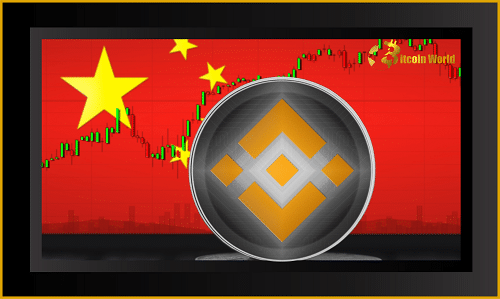Is Binance a Chinese company? It’s a question that has been circulating in the crypto sphere, especially as China’s stance on cryptocurrencies remains firm. Changpeng Zhao (CZ), the founder and CEO of Binance, the world’s leading cryptocurrency exchange, has recently addressed this question head-on. Let’s dive into CZ’s statement and understand why this clarification is so crucial, particularly in the context of China’s ongoing crypto regulations.
Binance: A Global Crypto Powerhouse, Not a Chinese Entity
In a recent blog post, CZ firmly stated, “Binance is not a Chinese company nor do we operate culturally as a Chinese company.” This statement comes at a time when China’s regulatory environment for cryptocurrencies is increasingly stringent, with a complete ban on crypto trading within its borders.
CZ highlighted that while he was born in China, he moved to Canada at a young age and is a Canadian citizen. He further clarified that Binance, despite its initial launch in China in July 2017, had to relocate just two months later in September 2017 when the Chinese government began to crack down on cryptocurrency exchanges. This quick pivot underlines Binance’s adaptability and its commitment to operating within regulatory frameworks, even if it means leaving its initial place of origin.
As CZ himself noted:
- Binance was started in China, briefly.
- Binance was never legally incorporated in China.
- Binance moved out of China in 2017.
Why the ‘Chinese Company’ Label?
So, why does the misconception of Binance being a Chinese company persist? CZ suggests that some might intentionally label Binance as such, possibly with malicious intent. He points out that Binance’s diverse team mirrors that of other global crypto exchanges like FTX and Crypto.com, indicating a global talent pool rather than a specific national identity. However, the narrative of ‘Chinese company’ continues to be pushed by some.
This label becomes particularly problematic given China’s current stance on cryptocurrencies. As CZ explains, “The biggest challenge Binance faces today is that Binance, and every other offshore exchange, is classified as a criminal entity in China.” This classification carries significant weight and can impact user perception and regulatory scrutiny, especially for users within or connected to China.
Binance’s Global Footprint: A Decentralized Approach
Binance’s operational structure is far from being centralized in China. In fact, Binance has strategically expanded its reach across the globe, establishing subsidiaries and obtaining regulatory approvals in numerous countries. CZ explicitly stated, “We have subsidiaries in many jurisdictions, including France, Spain, Italy, UAE, Bahrain, and more.” He further emphasized, “But we don’t have any legal entities in China, and we do not have plans to.”
This global strategy demonstrates Binance’s commitment to operating within diverse regulatory landscapes and catering to a worldwide user base. It’s a deliberate move away from being tied to any single nation, especially one with a restrictive stance on crypto.
Here’s a glimpse of Binance’s expanding global presence:
| Region | Presence/Subsidiaries |
| Europe | France, Spain, Italy |
| Middle East | United Arab Emirates, Bahrain |
| North America | Binance.US (separate entity, compliant with US regulations) |
| Asia | Operates in various countries, but no legal entity in China |
The Unclear Headquarters: A Deliberate Strategy?
Interestingly, the location of Binance’s global holding company remains undisclosed. This lack of a traditional headquarters has been a point of discussion and, at times, speculation. However, in the decentralized world of cryptocurrency, this approach could be seen as a strategic move. By not being anchored to a single location, Binance aims to navigate the complex and ever-evolving global regulatory landscape with greater agility and flexibility.
This decentralized approach aligns with the ethos of cryptocurrency itself – borderless, global, and not confined to traditional geographical boundaries. It allows Binance to adapt to different regulatory requirements in various jurisdictions and to serve a global community of crypto users.
Key Takeaways for Crypto Traders and Enthusiasts
For crypto traders and enthusiasts, understanding Binance’s stance as a non-Chinese company is crucial for several reasons:
- Regulatory Clarity: It clarifies Binance’s operational independence from Chinese regulations, which are increasingly restrictive towards crypto.
- Global Accessibility: Binance’s global subsidiaries and operations ensure accessibility for users worldwide, beyond the confines of any single nation’s policies.
- Transparency: CZ’s open communication addresses concerns and misconceptions, fostering greater trust and transparency within the crypto community.
- Strategic Direction: Binance’s global expansion strategy indicates its long-term vision and commitment to serving the global crypto market, adapting to diverse regulatory environments.
Looking Ahead: Binance in the Global Crypto Landscape
Changpeng Zhao’s clear statement reinforces Binance’s identity as a global cryptocurrency exchange, not tied to China despite its founder’s origin and initial launch location. In a world where regulatory landscapes for crypto are constantly shifting, Binance’s decentralized approach and global expansion strategy position it to navigate these complexities effectively. For users and the broader crypto community, this clarification provides valuable insight into Binance’s operational structure and its commitment to serving a global, rather than nationally confined, market. As the crypto industry continues to evolve, understanding the global footprint and strategic direction of major players like Binance is essential for informed participation and navigation.
Disclaimer: The information provided is not trading advice, Bitcoinworld.co.in holds no liability for any investments made based on the information provided on this page. We strongly recommend independent research and/or consultation with a qualified professional before making any investment decisions.


